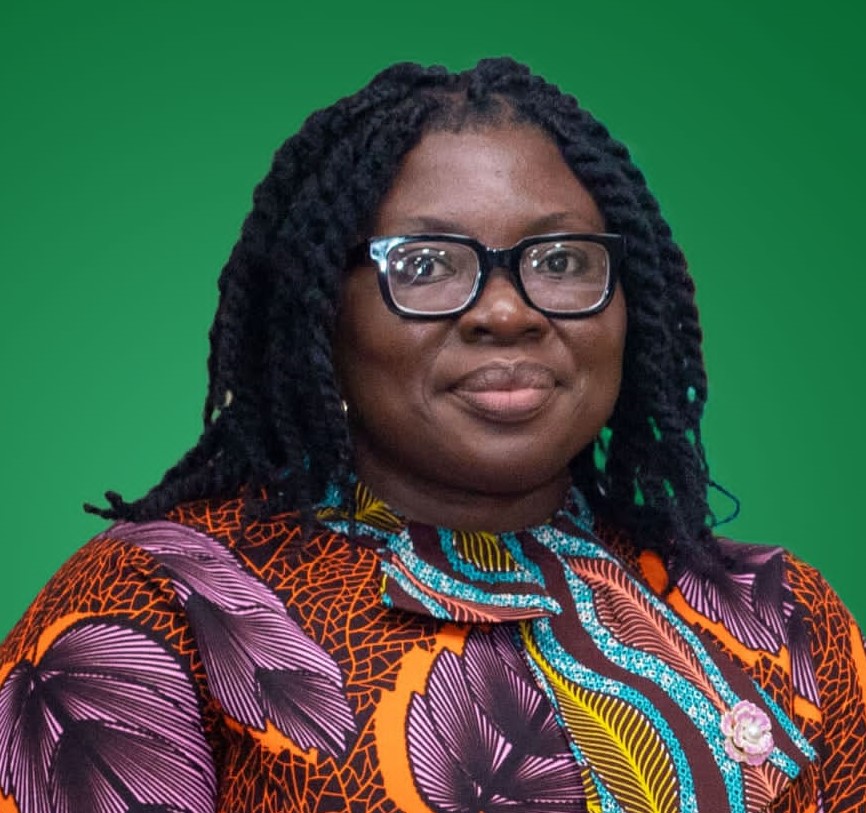
By Ama Kudom-Agyemang
Every October, the world goes pink – a symbolic reminder of the ongoing fight against breast cancer. Across countries and communities, survivors, advocates, and health institutions amplify a message of hope: “early detection saves lives.” In Ghana, where breast cancer remains the most commonly diagnosed cancer among women and the leading cause of female cancer deaths, this message is both urgent and deeply personal.
The urgency of this call, is underscored by the fact that, while the exact cause of this devastating disease remains unknown, scientists also point to hazardous chemicals in our everyday environment as important and often overlooked contributing factors
This year, that call resonated powerfully at the Resurrection Temple, Adenta Branch of Perez Chapel International. Run for a Cure, Ghana, an NGO committed to the eradication of breast cancer in Africa collaborated with the leadership of the Church and its Women of Faith Ministry (WOF), and organized a comprehensive sensitization and free screening exercise to mark Breast Cancer Awareness Month.
The event, held on Sunday, October 26, 2025, combined education, screening, and spiritual reflection, inspiring women to take charge of their health as part of their faith journey.
A Call from the Pulpit: Health as a Ministry Priority
Before the main presentation, Associate Pastor Sammy Appiah delivered an exhortation which among other things, reminded the congregation that caring for one’s body is a divine duty. He underscored that health is central to Christian living, explaining that “our ability to serve God effectively and live purposeful lives depends, in many ways, on the state of our health.”
Pastor Appiah’s message emphasized that Christian service thrives on wellness: physical, mental, and spiritual. He urged believers to make their health one of the priorities in their daily lives. His words set the tone for a morning that intertwined faith, science, and wellness.
Demystifying Breast Cancer: Understanding the Risks
The main presentation was delivered by Madam Rita Narkie Odonkor, a member of Run for a Cure, Ghana and Head of the Nursing Department of the West End University Collage, at Ngleshie-Amanfro. Speaking on the global theme, “Catch it Early, Treat it Right, Survive it,” she simplified medical facts and made them relatable to everyday life.
Madam Odonkor explained that breast cancer develops when cells in the breast grow uncontrollably, forming lumps or masses that may invade surrounding tissues.
She admitted that while the exact cause is not known, risk factors include modifiable ones that can be controlled and managed such as stress, cosmetic implants, diet, excessive alcohol intake, smoking and exposure to radiation. The non-modifiable risks are those that are beyond human control like being a woman, history of breast cancer in once’s family and oestrogen exposure through early onset of the menstrual cycle and late menopause.
However, Madam Odonkor, emphasized that “men, too, can develop breast cancer, although at lower rates,” and advised “everyone to be alert to unusual changes in the breast area and report them early.”
The concern of her Team is that breast cancer cases are on the rise in Ghana. Last year, 4,400 new cases were diagnosed and approximately 2000 deaths occurred. Statistics from the Ministry of Health indicate that breast cancer accounts for about 18 % of all cancer related deaths among Ghanaian women.
Recognizing the Signs, Acting Early and Treatment
Using vivid pictorial slides, Madam Odonkor demonstrated how benign or harmless and malignant or dangerous lumps differ, stressing that early detection is critical to survival. Warning signs include: painless swellings in the breast, armpit or collarbone; changes in breast shape or size; thickening of the breast skin or when it becomes like an orange peel; a retracted nipple and a nipple discharge unlike that of a nursing mother.
“Pain is not the first sign,” she cautioned. “Don’t wait until it hurts before you act,” and urged women to perform monthly breast self-examinations and to have clinical screenings at least once a year.
Madam Odonkor explained that once it is established that one has breast cancer, three methods of treatment are available: Surgery to remove the lump or affected breast, radiotherapy process involving the use intense energy to kill the cancer cells, and chemotherapy, which uses powerful drugs to kill the fast-growing cells.
Following her presentation and general discussions, the other members of the group, who are also nursing professionals conducted free screenings and provided counseling to the women. The atmosphere was one of both seriousness and relief: seriousness at the realization of risk, and relief at knowing how much could be done to stay healthy.
A Reflection on the Event
Reflecting on the significance of the day’s activities later in an interview, the President of the Church’s Women of Faith Ministry, Ms. Louisa Nelson shared her joy over the engagement. “Sunday’s breast cancer sensitization and screening was a vital step towards promoting our health and wellbeing,” she stated,” noting that “it raised our awareness on the importance of early detection and empowered our members, especially we women, to take charge of their health.”
Ms. Nelson encouraged all other branches of Perez Chapel nationwide as well as women in other congregations and religious bodies to take advantage of this month, and beyond “to engage in similar initiatives for continuous awareness on healthy lifestyles and choices.”
The Environment-Health-Cancer Nexus
Madam Odonkor’s presentation gave a hint on the relationship between environmental exposures and breast cancer risk. Research findings have established that long-term contact with certain chemicals and pollutants can disrupt hormonal balance and possibly influence cancer development.
“These are chemicals we are exposed to through the air we breathe, the food we eat, the water we drink, and the products we use. Many of them have been linked with breast cancer,” according to a publication on Breast Cancer and the Environment on the website of the USA based Silent Spring Institute, which researches into environment and women’s health.
The publication said over the years, studies have shown that chemicals can trigger breast cancer in many different ways. “They can damage DNA, causing a cancerous tumor to form; they can make breast cells grow uncontrollably; and they can change the way the breast develops, leaving it more vulnerable to carcinogens.”
It therefore called for the integration of the contribution of environmental chemicals in cancer prevention strategies, in order to reduce the burden of breast cancer. It is also recommendable that national cancer awareness raising efforts be complemented by environmental protection officers and activists advocating stricter regulation of hazardous chemicals, cleaner industrial practices and public education on safer product use.
The environment-health-cancer nexus makes it imperative for everyone, especially women to be conscious of their environmental health choices. Every small effort to reduce pollution or toxic exposure contributes to a healthier life.
Catching It Early, Treating It Right, and Surviving It
As Breast Cancer Awareness Month draws to a close, the message from the Adenta Perez Chapel and Run for a Cure, Ghana, event remains clear and hopeful: early detection saves lives. While, screening, self-examination, balanced living, and environmental mindfulness can drastically reduce risk.
With continued education and collaboration among civil society, health professionals, and faith-based organizations, Ghana can make meaningful progress in reducing breast cancer incidence and mortality.
The 2025 theme, “Catch it Early, Treat it Right, Survive it,” is far more than a slogan: it is a declaration of faith, resilience, and shared responsibility. It reminds every woman, every family, and every community that vigilance and care can turn fear into survival, and survival into testimony.
Assisted by another member of the Run for a Cure, Ghana Team, Madam Odonkor demonstrates the process of self-examination of the breast.
A cross-section of the congregation at the Resurrection Temple, Adenta Perez Chapel during the cancer awareness sensitization event conducted by the Run for a Cure, Ghana Team
The post Faith meets health: Fighting Breast Cancer through awareness of the risks including environmental factors appeared first on The Business & Financial Times.
Read Full Story











Facebook
Twitter
Pinterest
Instagram
Google+
YouTube
LinkedIn
RSS